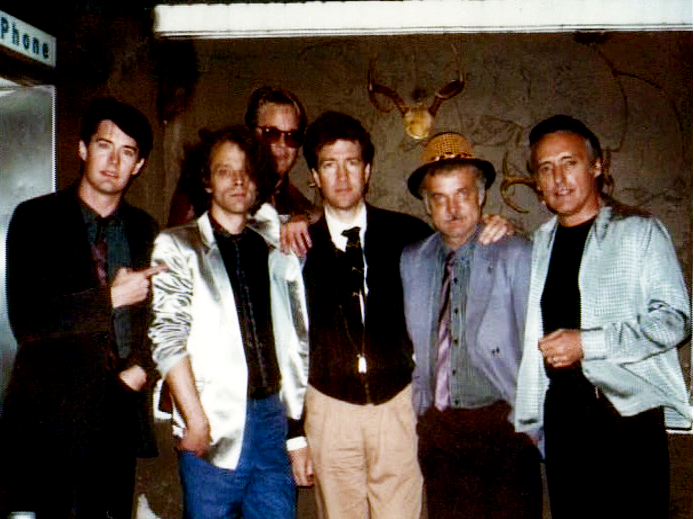BLUE VELVET
Dir. David Lynch
1986
The short films David Lynch made in art school, as well as Eraserhead, contain his intense visual horror flair and his otherworldly treatment of sound and light, but they’re deeply angry films, a young man railing against societal failures and expectations. The Elephant Man and Dune are adaptations, Lynch putting his distinct style onto other people’s work. But they also soften his edges quite a lot – Dune marks what I think his first real mature work showcasing empathy and friendship, the relationships between Paul Atreides and his friends full of liveliness. It’s the first time watching a David Lynch project I feel like you can really fall in love with some of the characters.
It’s also the last time Lynch would ever work on something that massive in scale, even accounting for Twin Peaks: The Return. The degree to which Lynch poured his heart into the film, the time he spent with Frank Herbert (who largely liked the film) undermined in post-production by the De Laurentiis family, ended Lynch’s desire to work on big-budget films going forward. Creative control came with a lower asking price – according to producer and Lynch collaborator Sabrina Sutherland, that approach is still getting pitches into board rooms as long as they aren’t about mythical Snoots.
The lessons he learned making Dune are visible in Blue Velvet, not least of which through the return of Kyle MacLachlan as Jeffrey Beaumont, another precocious golden lion-boy quickly corrupted by exposure to a world where naivete can become egomania. While Blue Velvet was conceived in 1973 alongside Eraserhead, it lacks that film’s sour edge and general misanthropy. The film is still on the knife’s edge of thriller and horror, depending on how unsettling you find its darkness, but it comes to that darkness through a deep love of its characters. Jeffrey is presented from the start as a character more like one of the Hardy Boys than Jack Nance’s Eraserhead Henry Spencer, and while he does find some unseemly, voyeuristic desires and a penchant for manipulation in himself, his conscience also always seems aware that these things are wrong.

That melodramatic empathy with these characters is, to me, the real heart of the Lynchian ideal, as it combines tropes or familiar, mundane elements with intense tragedy or darkness. Some people take this to mean something as simple as “the radiator is menacing” – while I think that’s certainly true of Lynch, it’s also true of iconic images like the telephone on the stairs in Maya Deren’s Meshes in the Afternoon or the basement in Charles Laughton’s The Night of the Hunter. I think what really makes the Lynchian whole is the juxtaposition of menace and love, and just about every Lynch work from Dune onward is embodied by that ideal.
It’s certainly the primary iconic juxtaposition of Blue Velvet, Bobby Vinton playing over a suburban lawn until the grass leads us back to a severed ear. Isabella Rosselini’s Dorothy Vallens is tragic but also erotic, and her trauma response cycles between despair and desire in the flash of a moment. Frank Booth is a terrifying villain, and that villainy never comes forward more uncannily than watching Dennis Hopper sob over the performance of the woman he brutalizes. Even Dean Stockwell’s terrifying pimp Ben is given the Roy Orbison “In Dreams” solo, creating a dynamic of traditional American beauty and violent blood running under the surface. The only person spared this conflict is Laura Dern’s Sandy, whose only exposure to the darkness is to see it crashing down upon her lawn in the film’s crushing climax of melodrama.
David Lynch’s work has meant a lot to me for the past ten years or so, since I first met Twin Peaks and Eraserhead. Annie and I originally bonded over talking about Twin Peaks, and his films have been a source of many beloved memories of mine. Last summer, when we moved back to Madison, the first film we saw at the UW Cinematheque was Blue Velvet, and there I reunited for the first time with friends I met maybe six months after my first time watching Twin Peaks. It’ll remain a special experience to me for a long time.